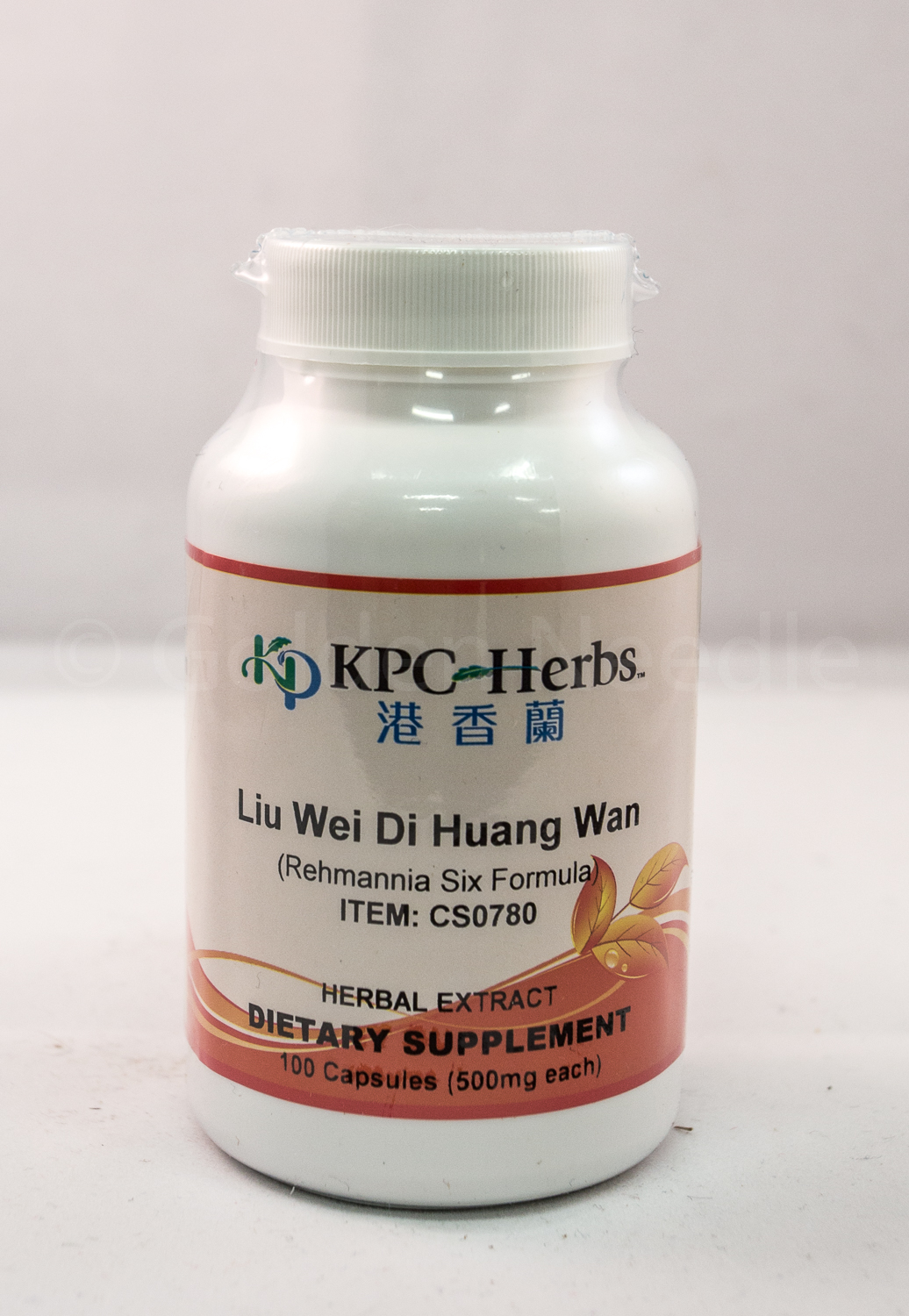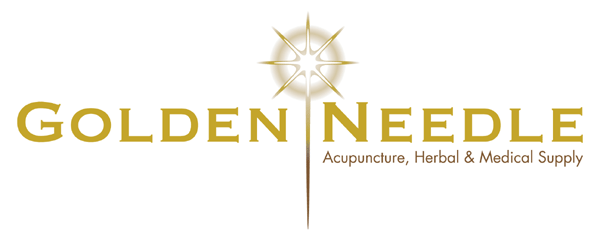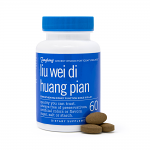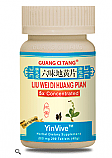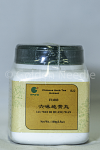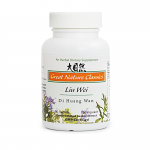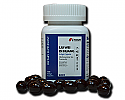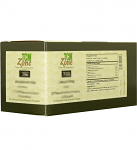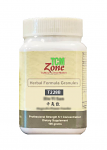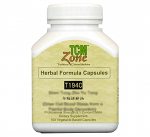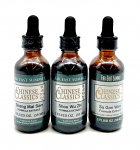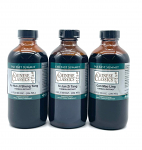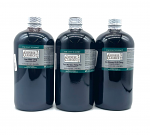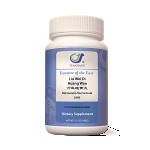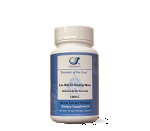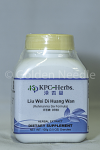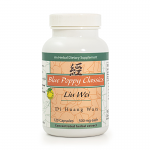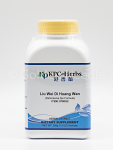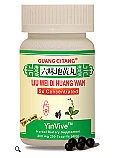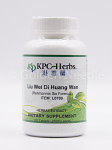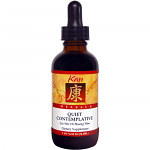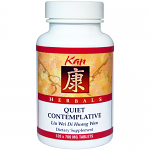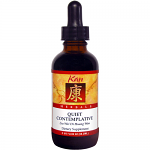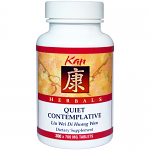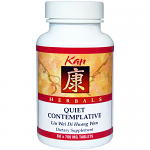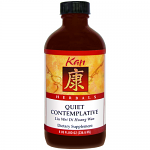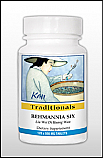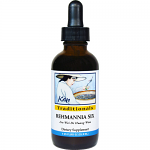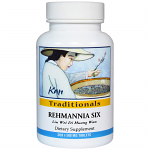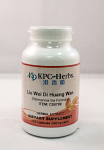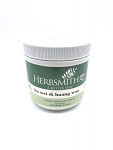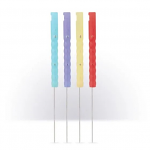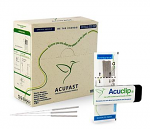| Description |
This formula is for the classic presentation of Kidney and Liver yin deficiency. The Kidneys are involved in a few different ways. The lower back is the abode of the Kidneys, which are also associated with the bones and are responsible for generating marrow (which gives the bones their resiliency and strength). When the Kidneys are weak, the marrow will become depleted and there will be a general weakness of the skeletal structure which is focused in the area of the body most closely associated with the Kidneys, the lower back and legs. Kidney and Liver yin deficiency also means that the essence (Kidneys) and blood (Liver) are not flourishing and are therefore unable to nourish the upper parts of the body, primarily the sensory orifices. The eyes are nourished by the Liver; lack of nourishment manifests as light-headedness and vertigo. The ears are nourished by the Kidneys; lack of nourishment manifests as tinnitus and diminished hearing. When the yin is deficient, it is unable to retain substances during the night, which is associated with yin. This causes night sweats and nocturnal emissions. The deficient yin is also unable to preserve the essence, which is manifested in men as spontaneous emissions. Yin deficiency and internally-generated heat is reflected in the red color of the tongue and the less-than-normal moisture (litte or no coating), and also in the pulse, which holds little volume (thin) and is rapid. Depending on the individual and the particular etiology of Kidney and Liver yin deficiency, other problems may also occur. If the heat from deficiency is more severe, the patient will present with hot palms and soles, a flushed face, or a dry and sore throat. If the heat transforms into fire and ascends to the teeth (which are connected with the Kidneys), there will be toothache. And if the Kidney qi is also unstable, there will be wasting and thirsting disorder with copious urination.
This formula is a variation of Kidney Qi Pill (Shen qi wan) from Essentials from the Golden Cabinet. The author of this script, Qian Yi, omitted the yang-tonifying herbs to create a formula for treating Kidney yin deficiency in children characterized by an open anterior fontanel, lack of spirit, and a shiny, pale complexion. Because of its elegant and well-balanced formulation, it is considered to be an exemplary formula. Because the Kidneys house the true yin, problems of the type described above can influence all the other yin organs. For example, the Heart and Kidneys are both lesser yin organs, the former being relatively yang as it is located higher in the body. Kidney yin deficiency often results in a lack of control over the yang (Heart), with fire from deficiency blazing upward through the lesser yin channels. This manifests as a dry throat, pain in the tongue, night sweats, and insomnia. However, despite this interrelationship among the yin organs, not all disorders of yin deficiency can be treated alike, i.e., with this formula. Each must still be diagnosed on its own merits and treated accordingly. The comparison of this formula with Tonify the Middle and Augment the Qi Decoction (bu zhong yi qi tang) will help illuminate the concept of ascending and descending functions in traditional Chinese herbal medicine. This comparison was first made by the eighteenth-century physician, You Yi. When the yang is deficient, the qi collapses. This is the thrust of Tonify the Middle and Augment the Qi Decoction (bu zhong yi qi tang). By contrast, when the yin is deficient, the qi rises but does not return downward. Thus cloying, \'heavy\' herbs such as the chief herb in this formula are combined with herbs that leach out fluids through the urine to encourage the qi to descend. This the is the mechanism underlying Six-Ingredient Pill with Rehmannia (liu wei di huang wan). (From Bensky: Chinese Herbal Medicine Formulas and Strategies) |
|
| Ingredients |
Supplement Facts
Serving Size: 4 capsules
Amount per Serving (Herbal Extract)
Shu Di Huang (Rehmannia Root, Cooked) - 32.0%
Shan Zhu Yu (Cornus Fruit) - 16.0%
Shan Yao (Dioscorea Stem) - 16.0%
Mu Dan Pi (Moutan Peel of Root) - 12.0%
Fu Ling (Poria Fungus) - 12.0%
Ze Xie (Alisma Stem) - 12.0%
|
